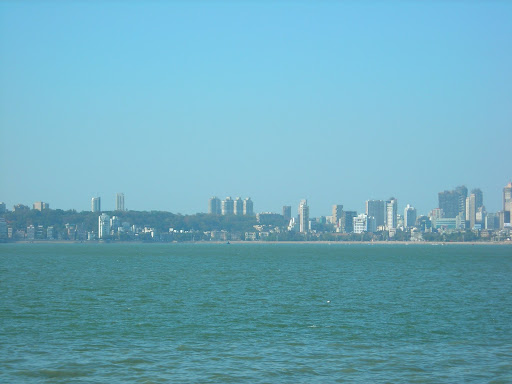Whenever I visit Lower Parel and the various mills in the area (Phoenix Mills, Todi Mills, Kamla Mills, etc.), I am struck by the striking poverty on one side and the elite display of conspicuous consumption on the other. Festering, moss-blackened old buildings stand proud and erect beside tall and statuesque concrete towers. There aren't any open spaces, gardens, playgrounds as were originally planned by the architects of the mill land development. The youth of the area living in the original Chawls (basic accommodation of one room and kitchen with common toilets) of the area can be seen lolling around in groups unable to be a part of the city that has grown around them. When I ask for directions to this or that night spot I can see a feeling of hurt and defiance in the young people who show me the way.
This article authored by Naresh Fernandes, which originally appeared in Time Out in Mumbai which was reproduced in Citizens for Peace website points to one of the biggest gaffes in modern city planning, i.e., for redevelopment of the heart of the city of Bombay into a pleasant and livable area replete with gardens and social spaces for the residents of the area. Remember, they have the first rights to their neighbourhood. Today there are multiplexes, clubs, fine dine restaurants that none of the local residents can afford, to which the citizens of Cuffe Parade, Pedder Road and Napean Sea Road congregate. There have sprung up a number of high-rise office complexes in the area which are choking the infrastructure and a friend said that even in these posh complexes they have to remove their shoes and socks to wade through the collected water during monsoon. What should have been well developed turned into a nightmare of mismatched development:
"To be fair, Menon [Meena Menon of Girni Kamgar Sangharsh Samiti, an organization representing the workers of the mills of the area) points out that AGNI was among the groups that supported her union in its decade-long battle to demand that the 600 acres of mill land in central Mumbai would be properly planned, creating more open space and public housing. Still, when the Supreme Court ruled in May 2006 that mill owners could develop their 54 plots piecemeal, most Mumbaikars had no idea about the enormity of the opportunity that had been lost. This lack of knowledge mirrored the city's lack of will to force significant change the previous year, when a cloudburst left 447 people dead and showed conclusively how our development plan had been completely undermined by builders in association with corrupt bureaucrats and politicians.
Well and truly a momentous decision that upturned a lot of what has gone wrong with that area. Today everyone is bearing the brunt of the lopsided development. There are traffic jams a kilometer long in the arterial roads, there is shortage of water, poor sanitation, rubble and garbage lying on the roads, and people, people everywhere. Talk goes on about big developers moving in, but nothing is certain, an unhealthy silence prevails. Close to this is the planned 117-storey residential towers that will rise like a phoenix above the city skyline.
God help Bombay if that happens.




